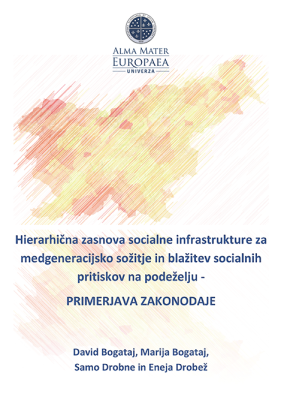Hierarchical design of social infrastructure for intergenerational coexistence and alleviation of social pressures in rural areas - Comparison of legislation
Synopsis
How can we ensure dignified ageing and a sustainable long-term care system in rural areas? This monograph explores the development of an integrated social infrastructure for older adults, with a focus on a hierarchical approach to housing and care – ranging from in-home assistance and supplementary on-farm activities, to community-based models such as “silver villages” and regional solutions like nursing hospitals.
Particular attention is given to the challenges faced by elderly people living on farms, including limited income, lack of care, and social isolation, as well as the opportunities for revitalizing rural areas by engaging younger generations in caregiving roles.
The authors also examine the financial and systemic dimensions of long-term care, emphasizing the need for efficient use of public resources. A comparative legal analysis highlights legislative frameworks and best practices from several European countries (Austria, Italy, Germany, the Netherlands, and Spain), along with lessons learned from less effective approaches.
Downloads


